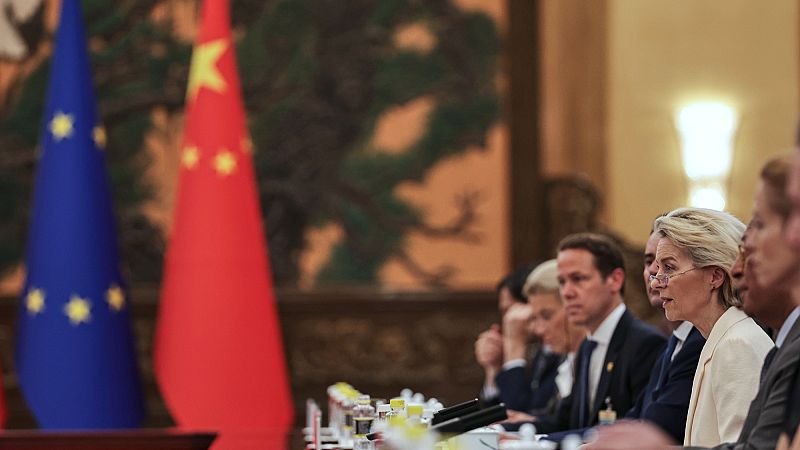European Commission calls for no escalation with China over rare earths

As relations between the EU and China have grown tense in recent weeks following China’s decision to restrict rare earth exports, European Commissioner for Trade Maroš Šefčovič on Tuesday called for de-escalation after speaking with his Chinese counterpart, Commerce Minister Wang Wentao.
“We have no interest in escalation,” Šefčovič said, describing his call as “constructive”.
He also hoped for “a prompt resolution” of the dispute, inviting his Chinese counterpart to come to Brussels in the coming days at the end of the two-hour call – an invitation that Wang accepted, Šefčovič said.
In a renewed escalation of tensions with the US, China announced on 9 October new controls on its exports of rare earths to the rest of the world, making the EU a collateral victim of the trade dispute with Washington.
The new rules notably require companies to obtain licenses from Chinese authorities to export products containing rare earths and to declare their intended use — a procedure that Šefčovič described last week as “unprocessable” for European companies, given how tightly the Chinese administration conditions the granting of these licenses.
The EU, like the rest of the world, is heavily dependent on China for rare earths, as the country controls 60% of global production and 90% of refining, according to the International Energy Agency (IEA).
These minerals are essential for the digital, automotive, energy, and defence sectors.
“A new wave of Chinese export controls could disrupt production and increase costs. I take this warning very seriously,” EU commission’s president Ursula von der Leyen told MEPs on Tuesday, explaining that the bloc's strategy was to diversify its supply chain through new trade deals across the globe and work on measures for recycling.
Situation tense for EU firms
The situation is taut for European companies, only half of whose license applications have so far been approved by China, according to Šefčovič.
Given the urgency of the situation, European Commissioner for Industry Stéphane Séjourné held a videoconference on Monday with key representatives of European industries.
Enterprises such as Volkswagen, Stellantis, Siemens, Bosch, Solvay and Umicore — the car, wind power, chemical and mineral processing industries — were among those represented to share the impact of the new Chinese controls on their businesses.
A source from Séjourné’s office admitted that as the situation varies from one sector to another, a one-size-fits-all solution was “unlikely” in the short term.
However, to mitigate the impact of Chinese controls on EU industry, the same source said the Commissioner told European firms that the EU was working on a potential joint purchasing and storage centre.
The issue might be raised during a one-day EU summit on Thursday, although there will not be a “specific discussion” on the matter, as no member state requested one, a senior EU official said.
Nevertheless, the summit will address issues related to competitiveness and green technology, where a “message of economic security could be included.”
“It’s an important topic that leaders are aware of,” the official added.
Beijing's decision on rare earth export controls came after a resurgence in trade tensions with the US, which have been severely testing relations since the return to power of US President Donald Trump.
Since last week, following an investigation launched under the Biden administration, the US has been imposing fees on ships built or operated by Chinese companies that dock in the United States.
The US also expanded its blacklist of Chinese companies at the end of September — the so-called entity list, which restricts some firms' access to US technologies.
At the height of tensions between the two economic giants, reciprocal tariffs exceeded 100% a few months ago, but have since returned to 10% on US goods entering China and 30% on Chinese goods exported to the US, following a truce agreed in May after talks in Geneva, Switzerland.
Today

